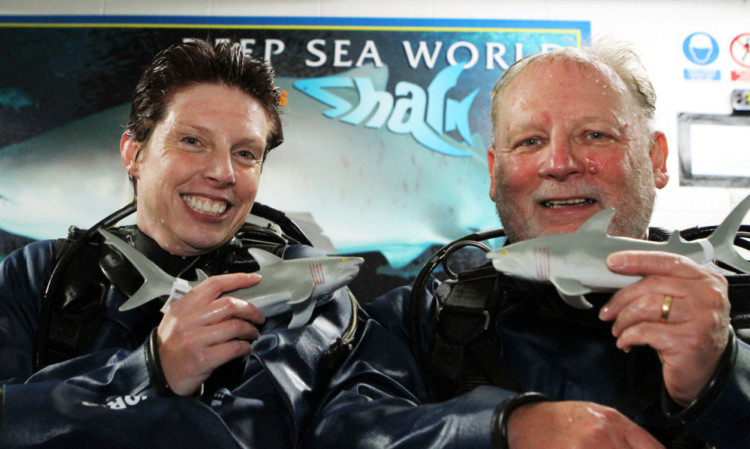A type of antibody found only in the blood of sharks could help tackle breast cancer, scientists have said.
It is thought that the unique IgNAR antibodies could be used to prevent the growth of cancer cells and research into them could lead to the development of new drugs to fight the most common form of the disease in the UK.
Biologists from Aberdeen University have been awarded £200,000 by St Andrews cancer research charity the Association for International Cancer Research (AICR) to carry out a three-year study.
Their work will focus on two molecules, HER2 and HER3, found on the surface of cancer cells which, when they pair up, are responsible for signalling cancer cells to grow and divide.
Potentially, IgNAR antibodies could be used to stop these molecules from working and sending the signal.
Dr Helen Dooley, who is from the university’s school of biological sciences and will lead the study, said: “IgNAR antibodies are interesting because they bind to targets, such as viruses or parasites, in a very different way to the antibodies found in humans.
“They can do this because their attachment region is very small and so can fit into spaces that human antibodies cannot.
“We believe we can exploit the novel binding of IgNAR and use it to stop HER2 and HER3 molecules from working, and prompting cancer cells to grow and divide.”
Very high levels of HER2 are found on the surface of cancer cells in women who have HER2-positive breast cancer, this affects around a quarter of women with breast cancer.
HER2-positive breast cancer can be treated with drugs but resistance to this successful treatment is a growing problem.
Dr Dooley added: “With the funding from AICR we can begin to explore the potential of IgNAR as a future treatment for breast cancer.
“This is only the first step in a very long process but if our hypothesis holds true we hope to develop new anti-cancer drugs based upon these unique shark antibodies.”
Lara Bennett, from the AICR, said: “We believe that funding research projects like Dr Helen Dooley’s is so important for the future development of more effective treatments to help patients who become resistant to drugs like Herceptin.”
Breast cancer is the most common cancer in the UK and of those diagnosed more than 85% live for at least five years after their diagnosis and more than 75% live for at least 10 years.
